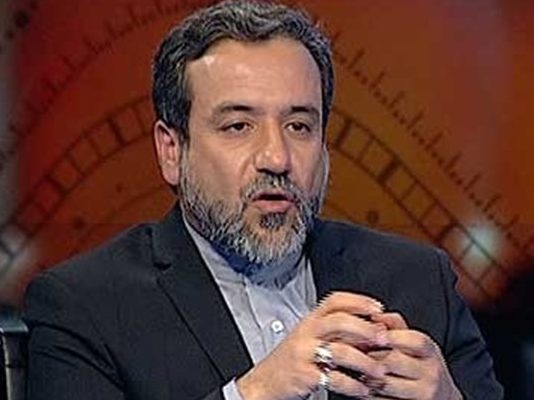Speaking in an international conference on the proliferation of weapons and security in the region on Wednesday, Araqchi referred to the new tensions in the Middle East, and said among the issues facing the region are the mistakes that different players, especially Saudi Arabia, have made in such countries as Yemen and Syria as well as their support for terrorist groups.
“Saudi Arabia made a childish mistake on the issue of Lebanon, and by Western sources’ admission, Iran has been the wisest regional player,” said Araqchi.
He further pointed to the ‘worrying’ trend of the proliferation of arms in the Middle East, according to a Farsi report by Fars News Agency.
Araqchi elaborated on issues related to conventional nonconventional weapons.
“As far as conventional weapons are concerned, the reality is that West Asia has turned into the world’s largest arms market, so much so that weapons sales in the world have increased by 10 percent since 2012, which has been unprecedented since the Cold War,” he noted.
He said one third of the weapons were supplied by the US, one fourth by Russia and the rest by China and certain European countries.
“Saudi Arabia, Qatar, the United Arab Emirates and Turkey are the major buyers of conventional weapons,” said the deputy foreign minister.
He said the West’s willingness to sell arms and the huge economic profit it makes from that are among the reasons behind Western countries’ inclination to create crises and tension in the Middle East.
“All back-to-back crises and conflicts in the region can be traced back to the countries selling weapons,” he noted.
He underlined the existence of a security vacuum in the Middle East is another reason behind a rise in the sales of conventional weapons to regional countries, and added the new threats emanating from terrorism has set the stage for the sales of more military hardware.
“All these factors have resulted in a very tight arms race between countries and turned the Middle East into a market for foreign weapons,” he noted.
Elsewhere in his remarks, Araqchi referred to the idea of a nukes-free Middle East, saying the main impediment to the realization of the idea is the Zionist regime of Israel.
He also touched upon the issue of chemical weapons, expressing concern over terrorists’ gaining access to chemical arms in Syria.
Araqchi then touched upon the misgivings which exist over nonconventional weapons, saying, “The only positive development in this domain is the Iran nuclear deal, which concerns non-proliferation.”
He noted that uranium enrichment has not stopped in Iran for a single day, and added, “The Iran nuclear agreement (known as the JCPOA) respects enrichment, and the UN Security Council, too, urges countries to have peaceful [nuclear] cooperation with Iran.”
He noted that Washington believes Iran has become stronger after the conclusion of the JCPOA.
Araqchi said the reason why the US cannot tear up the JCPOA is that there is no alternative for the agreement.
“The JCPOA is part of the non-proliferation system and part of the UN Security Council resolution which has no replacement.”
Elsewhere, he said Iran’s policy in West Asia is based on peace, stability and tranquility.
He said Iran welcomes any policy which helps ease tensions and conflicts and will contribute to such policies.
He said the resistance front should be strengthened to counter the root cause of instability in the region, which is the Israeli regime and its cronies, i.e. terrorist groups.
“The region should move toward stability, and the root cause of insecurity should be tackled. The reason why Iran supports resistance is that there is no way to establish peace and stability in the region, but resistance,” Araqchi concluded by saying.
